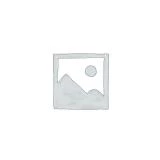The first cultivation of chia is believed to have taken place in the Mexico Valley between 2600 and 2000 BC. In pre-Columbian times, the roasted or ground chia seed was the third most important food source after corn and beans. For the Aztecs, chia seeds were a staple food, but when soaked in water, they were also used to make a refreshing drink. Its healing properties were also valued for the treatment of infections. The Aztecs considered the seed to be very energetic and gave it to hunters and soldiers during military training. It was pressed to extract an oil that was used as a base for body paints and ritually used to anoint statues and religious paintings.
The most nutrient-rich seeds that are whitish in colour. Chia seeds are rich in flavonols, a family of antioxidants. (Myricetol, quercetol, kaempferol), flavonol glycosides, chlorogenic acids and caffeic acid. They are rich in protein and fibre. With an admittedly variable rate of 16 to 23 % of protein, they are higher than wheat (14.7 %) and corn (14 %). They are also very rich in lipids containing a high proportion of omega-3 acids (alpha-linolenic acid represents 68 % of lipids, i.e. 21 % of the total) and a favourable omega-3 to omega-6 ratio of around 3-4.
Strengths: Chia seeds provide a good source of calcium and phosphorus and a very good source of dietary fibre and manganese. Chia has a good antioxidant activity provided by its polyphenols (chlorogenic, caffeic acids and flavonols). These various characteristics make it suitable as a food supplement to help improve intestinal transit, lower blood pressure, prevent osteoporosis and better assimilate proteins.
In 2009, the European Commission adopted the following decision: "Chia seeds (Salvia hispanica) and crushed Chia seeds, as described in the Annex, may be placed on the market in the Community as a novel food ingredient for use in bakery products at a maximum level of 5 % of Chia seeds (Salvia hispanica). "
According to a study published in 2007 in Diabetes Careresearchers found that patients with type 2 diabetes who consumed 37 grams of chia, the salba (about 6 tablespoons) daily, had a 32 % decrease in C-reactive protein (a marker of inflammation), a decrease in systolic and diastolic blood pressure, and an improvement in blood sugar. However, this relative decrease in C-reactive protein levels was due to an increase in C-reactive protein levels in the control group, which consumed wheat bran.









Reviews
There are no reviews yet.